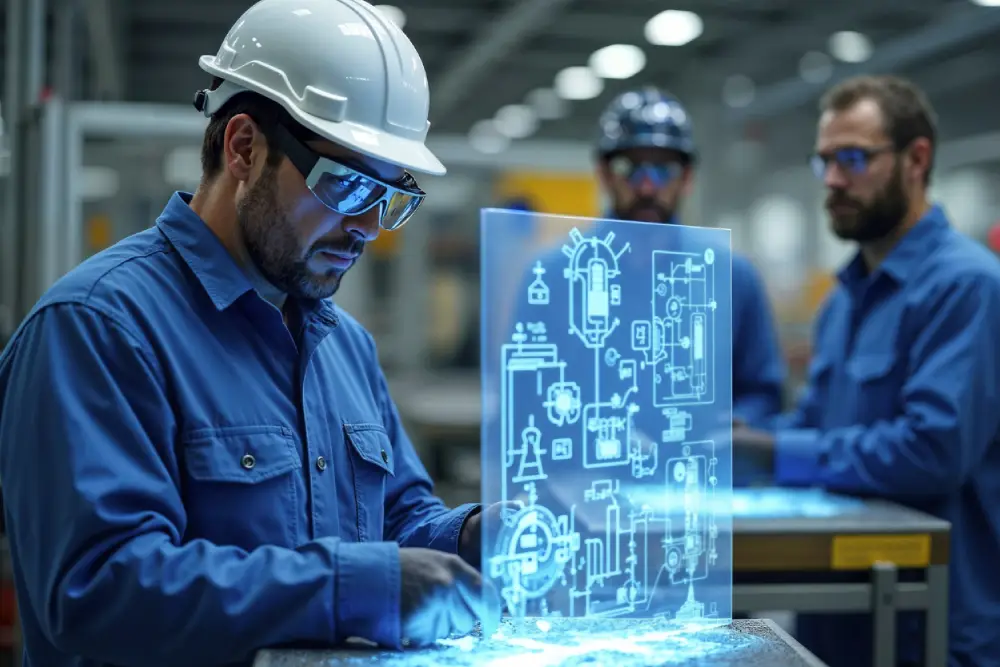
Product engineering is about more than just developing—it’s about crafting with purpose, precision, and a persistence for progress. Technologies like AI/ML are no longer reserved for tech giants rather are now essential for businesses across industries, empowering them to make smarter decisions, design better products, and innovate with speed and accuracy. Recent statistics show that 41% of companies use AI-powered analytics for product development.
Let’s understand how AI & ML are reshaping the area of product engineering and why it’s becoming indispensable for companies of all sizes.
AI: The Catalyst for Product Design & Decision-Making
Earlier the traditional product design process used to rely heavily on manual analysis, and intuition has been through a major makeover with AI/ML technologies. Machine Learning algorithms can analyze huge amount of data in real time, revealing insights that teams might take months to discover. By identifying trends, customer preferences, and potential pain points faster, these technologies empower teams to make data-driven decisions from the beginning stages of design. As per a report, ML algorithms can identify up to 50% more market opportunities than traditional methods by analyzing market data and finding underlying consumer needs.
AI-powered simulation tools also allow product designers to test various configurations and material choices digitally, significantly reducing the need for physical prototypes. Additionally, ML algorithms can predict the impact of design changes on factors like cost, durability, and user satisfaction, allowing teams to optimize their designs faster and more efficiently. A McKinsey study found that digital twin technologies reduce the total development times by 20%-50% and decrease the number of prototypes needed. The development cycles for top-performing firms are consistently 20%-25% faster than other companies. This streamlined approach doesn’t just save time—it also enables companies to innovate more frequently and with greater confidence.
Real-World Applications: Predicting Customer Needs and Personalizing Products with AI
One of the most powerful applications of AI/ML in product engineering is its ability to predict customer needs and tailor products to individual preferences. By analyzing data from customer interactions, purchase histories, and even social media behaviour, ML algorithms can build precise customer profiles, forecast trends and identify features that resonate most with different segments.
In a stellar example of predicting customer needs with AI, Costa Coffee managed to improve its app registration by 15%. During the launch of one of their loyalty programs, they noticed about 30% of users were dropping off during the registration process. To fix this conundrum, Costa Coffee’s product team turned to an AI analytic tool to zoom in on individual customer needs and get insights into why users were struggling with the registration process.
The analysis revealed that their invalid password flow was too complex, leading to about 15% of users dropping out after entering invalid passwords. Equipped with this knowledge, the team made some significant changes to the registration process, like simplifying the password requirements, reducing the number of steps required to reset a password, and making the overall experience more seamless and user-friendly. These simple changes to the user experience resulted in a 15% increase in app registrations!
Similarly, let’s look at how JobNimbus boosted its user adoption by 25%.
In 2020, JobNimbus encountered significant challenges, such as poor app experience and low user satisfaction. They faced a high churn rate and a disappointing app store rating of 2.5 stars. The app’s design was subpar, not user-friendly, and failed to meet the needs of its users, especially contractors in the roofing and construction industry. To deliver more value to their customers, JobNimbus leveraged an AI analytic tool to track valuable insights into user behaviour and preferences, allowing them to make data-driven decisions and rebuild the app with a focus on understanding customer needs and challenges.
After 18 months of dedicated efforts using the insights gained, the app’s rating improved from 2.5 stars to an impressive 4.8 stars! This significant increase in user satisfaction positively impacted their app’s reputation and credibility. Within just four weeks, JobNimbus experienced a remarkable jump in user adoption, growing from 0.51% to 25%!
AI powered analytical processes will improve the chances of creating the next item consumers may look for before then actually do. For instance, ML models are trained on pre-existing data, which allows them to identify underlying needs for new products and switch tasks into the development phase. Being able to implement such strategies provides businesses with a remarkable advantage in the market as two advantages of being the first to launch a new product or feature are sales and brand loyalty. Netflix and Spotify understand the importance of personalisation, hence AI and ML, allow them to come up with tailored recommendations to users based on their preferences, translating into user satisfaction. And in the consumer goods business, the same strategy is being applied: making whatever the AI pronounces customers are likely to want next.
Driving Intelligent Product Engineering with Felix Solutions
Felix Solutions implements AI and machine learning across the product development life cycle. Our development services enable clients to integrate tailored models throughout their systems. Our work commences with data and feature engineering. This is how artificial intelligence combined with NLP helps extract insights from vast amounts of unstructured data in the form of texts, audio, or images. By providing high-quality data support, we ensure the development of accurate, reliable AI/ML models that fuel innovation and growth within your organization.
Conclusion
A PWC report shows that by 2025, digital product development is expected to increase efficiency by 19%, reduce time-to-market by 17%, and reduce production costs by 13%.
In essence, AI/ML aids transform ideas into smart solutions. This cutting-edge technology has turned product engineering into a dynamic, insight-driven process where creativity and precision work in tandem. As AI/ML technology continues to advance, we can expect it to play an even more significant role in crafting products that are in tune with what users truly need.
